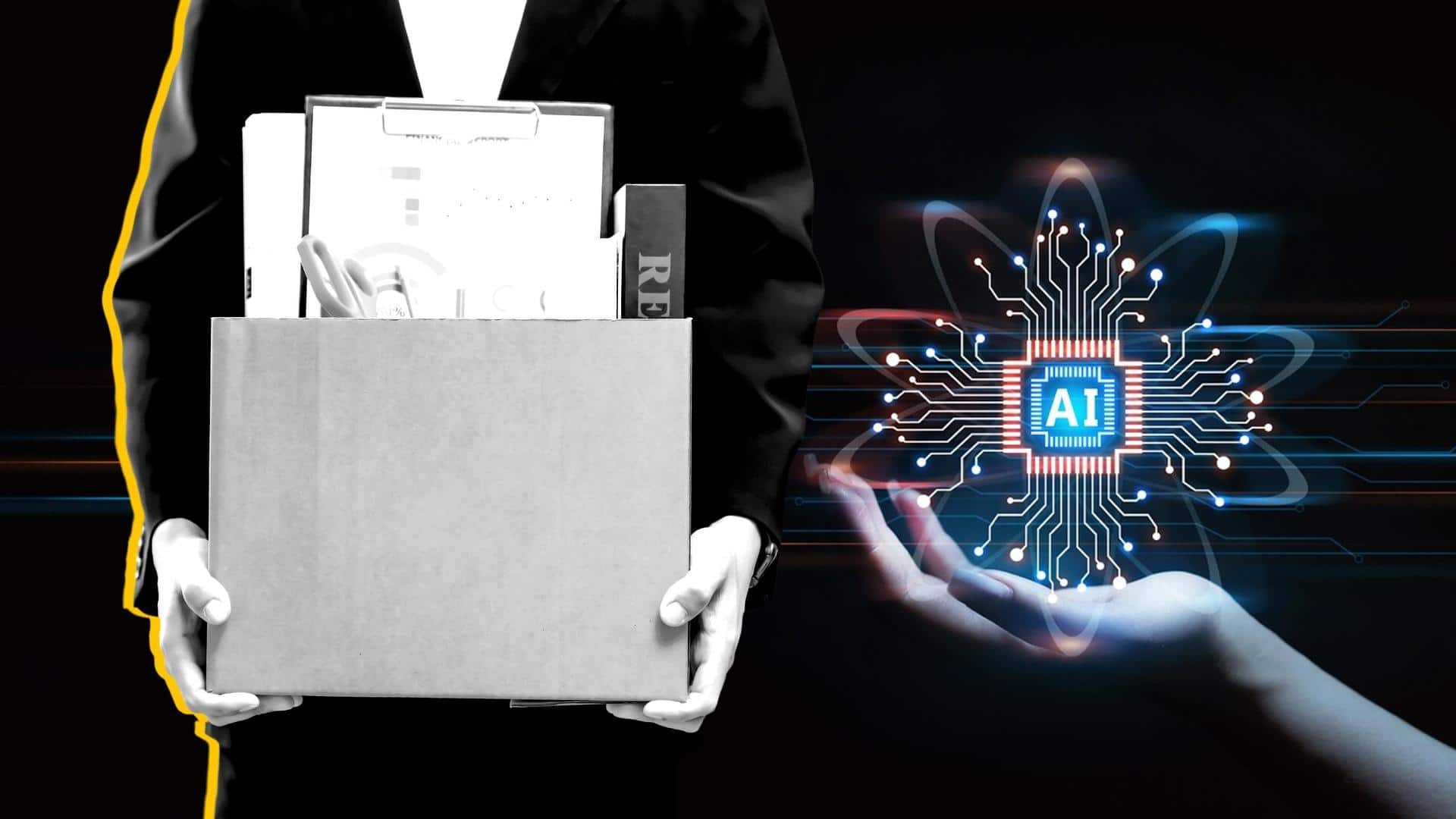
Goldman Sachs warns AI could wipe out 70% of jobs
What's the story
We are officially in the age of artificial intelligence (AI). The revolution started by ChatGPT is spreading like wildfire and is rapidly engulfing different fields. While stunned by AI's capabilities, we cannot overlook how it would affect the labor market. Per Goldman Sachs, at least two-thirds of jobs in the US and European Union are under threat from AI automation.
Context
Why does this story matter?
AI's rise has been swift. After years of research and a cautious approach, tech companies are finally unleashing the power of AI. Automation and its threat to jobs held by human beings is an age-old discussion. From the Industrial Revolution to the current AI revolution, technological advancement has constantly threatened jobs. Many believe AI's abilities make it a bigger threat than machines.
AI automation
AI automation can potentially increase economic inequalities
The introduction of machines increased the productivity of human beings. AI automation is expected to improve it further. AI, however, can replace human beings and can potentially transform several occupations. The degree of transformation would vary from job to job. AI's capability to mimic the human brain and even be better at it can lead to job losses at a time of growing inequality.
Sectors
Legal and administrative jobs might be the most impacted
According to Goldman Sachs, most jobs will be exposed to AI automation to some degree. Out of all sectors, administrative and legal sectors are expected to be the most impacted. The report says 46% of legal jobs and 44% of administrative jobs can be replaced by AI. On the contrary, physically-intensive professions will be less exposed to AI's impact.
Economic growth
GDP to grow by 7% over 10 years
AI is expected to improve economic growth. Per Goldman Sachs, AI has the potential to increase annual global GDP by 7% over a period of 10 years. The report has also pointed out some factors that would assist in enhanced GDP growth. These include significant labor cost savings, the creation of new jobs, and increased productivity of non-displaced workers.
Full automation
Half of all jobs will be impacted by automation
AI is rapidly growing, but it is far from realizing its full potential. At this stage of AI development, only 5% of jobs can be fully automated. However, over time, around half of all activities across sectors will be impacted by AI automation in one way or the other. Eventually, the extent of AI's impact will depend on its evolution and adoption timeline.